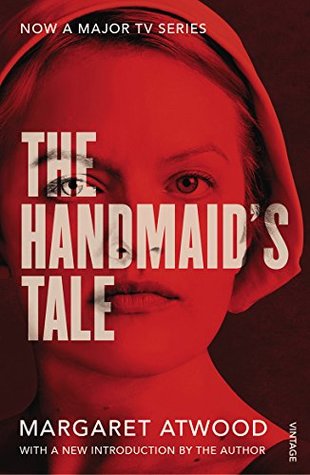Reviewed by Kim Deister on
The novel takes place in a dystopian near future (roughly 2004-2005). after society has fallen to a religious new order. The USA is no longer, now known as the Republic of Gilead. Society is based on a literal interpretation of the Book of Genesis, a rather chilling androcentric, misogynistic social order. Birth rates have sharply reason, providing the justification for the new system. Women have had virtually all of their rights taken away, reduced to categories like Jezebels (pleasure women), Marthas (cooks/housekeepers) and Handmaids (fertile breeding women). Aunts are in charge of retraining the lesser women, indoctrinating them in the new world order. Only the Commanders' Wives have even a touch of freedom, but that, too, is limited. The Handmaids even lose their names, becoming "Of-" and whatever the Commander's first name is.
It is a disturbing look at sexual politics, particularly the ways in which sexuality is or isn't expressed based on gender. It is a book about power and how what is seemingly utopian for some, it is clearly dystopian for others.
This is a book that is extremely thought-provoking, especially in this day and age. Despite the fact that it was published 31 years ago, there are so many themes in it that are just as relevant in today's world. There were times when I forgot I was reading a book that supposedly took place more than a decade ago.
The Handmaid's Tale is a part of me now, one of those books that I will read again and again. It is the kind of book that will give you a new experience each time it is read.
Reading updates
- Started reading
- 2 April, 2017: Finished reading
- 20 October, 2019: Reviewed
- Started reading
- 20 October, 2019: Finished reading
- 20 October, 2019: Reviewed
- Started reading
- Finished reading
- 20 October, 2019: Reviewed
